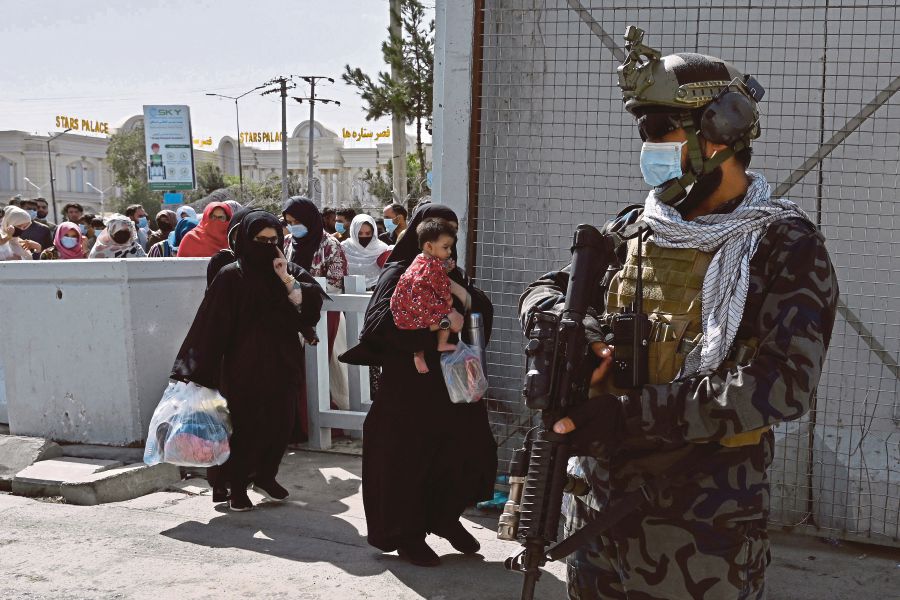The world in recent weeks seems fixated with the unexpected and whirlwind return of the Taliban to power in Afghanistan, 20 years after it was driven out of Kabul by the United States in the aftermath of the Sept 11 terror attacks in 2001.
It was a return by default, of course, and made possible by US President Joe Biden's decision to completely withdraw militarily from the country, heeding the popular sense of weariness felt by growing numbers of Americans about their country's "forever" military entanglements abroad.
The unforeseen unravelling of the Afghan government at lightning speed and the resulting mess as Western governments scramble to evacuate out of the country — complete with painful reminders of Americans hurriedly pulling out of Saigon in the dying days of the Vietnam war — is a serious blow to American prestige.
The Americans' latest global rival, China, can hardly contain its glee at the propaganda coup dealt by fleeing Afghans playing out in real time on television screens and over social media.
China lost no time in conveying what has been its main beef in its ongoing spat with the US: that Washington takes a condescending stance in seeking to impose its values and political system on the rest of the world, and look what happens now after two decades of nation-building in Afghanistan.
If even Afghanistan can so thoroughly humiliate the global superpower, America's "demands" of China — especially on things political — are surely many more times a fool's errand, Beijing is apparently saying.
It is rather tragic that Sino-American relations have reached such a low point, with both sides as intransigent as ever.
But, if China is trying to impress upon the US the lesson of American hubris, Beijing needs to be careful as well not to be overtaken by its own hubris.
To be sure, the US can do with all the reminders of the error of its foreign military entanglements and the idealistic, but often grimly unfulfilled pursuit to mould foreign nations "in its own image".
In a latest article on Afghanistan by Daron Acemoglu, co-author of the book Why Nations Fail, it was detailed how after 100,000 lives lost and US$2 trillion spent, Afghanistan now joins a rather dismal list of nations where the "top-down approach to state-building" favoured by successive US administrations has failed.
That said, my own observation is that this approach, or at least a strain of it, has worked out rather well with an admittedly tiny coterie of nations in East Asia.
It worked spectacularly well with post-war Japan and most stupendously of all, with China.
That it has not worked out so well with other nations, therefore, may have as much, if not more, to do with these nations themselves than with the US and its policy missteps.
It is being said that the US withdrawal from Afghanistan now presents China with an opportunity to make good on what it can constructively contribute towards the future wellbeing of a nation with the somewhat fearsome reputation as the graveyard of empires.
That, of course, presupposes the Taliban wants to open the country up for business and can ensure a modicum of security and peace for investors to want to put money into the country.
In the last 20 years, a certain division of labour had existed in Afghanistan between the US, acting out its role as global cop, and China, as the development partner of choice these days for many developing nations.
This would have been a rather perfect fit for Afghanistan, for once. Alas, it is not to be. America has grown tired of the seemingly thankless and unending task of building up other nations.
In part, China — with its vocal recent criticisms of the US wreaking war and destruction to other nations — seems also to have got what it wished for in Afghanistan.
Is it too much to expect both the US and China to see that together, they can do so much more to help build other nations?
The writer views developments in the nation, region and wider world from his vantage point in Kuching, Sarawak
The views expressed in this article are the author's own and do not necessarily reflect those of the New Straits Times






